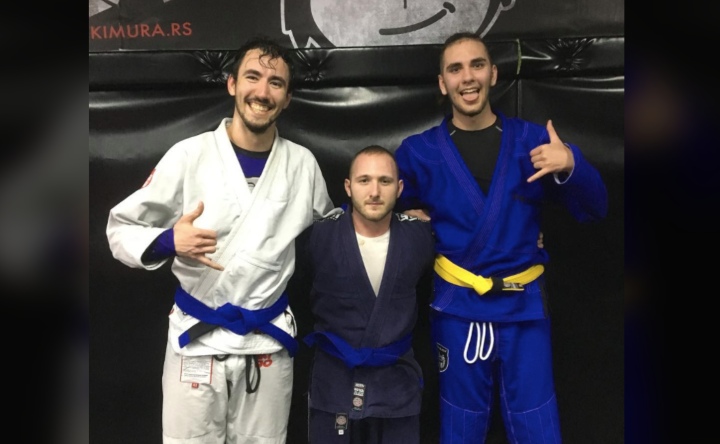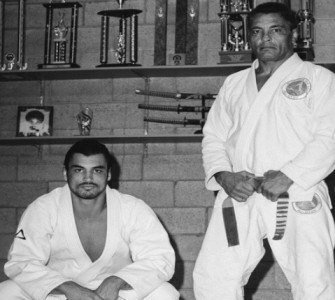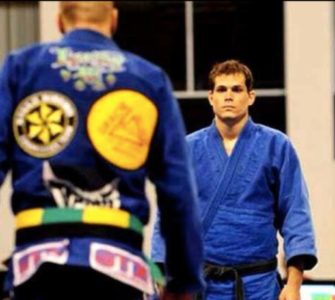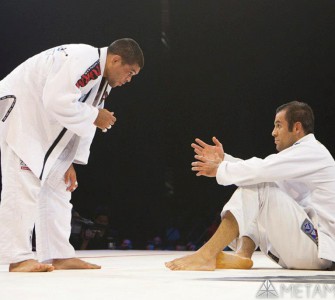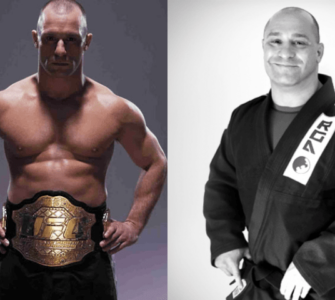A Grappler’s game starts to develop after around 4 years of training or around a purple belt in BJJ. However, that doesn’t stop a white or blue belt from experimenting with different things. Finding your ideal BJJ game consists of five key elements. If you follow these, you’re sure to be more than fully able to find a unique BJJ game that works for you.
Body Type:
Are you short? Are you tall? Are you skinny? Are you buff? Are you fat? Are you tiny? Whatever your body type, it’s going to play a factor into what your Jiu-Jitsu game is. If you’re really short and stocky, you might not play a really big open guard game, or a spider guard game. You may be about deep half, or maybe you’re focused about being on top because you may be really difficult to put on your back. If you’re tall and long, you might want to play a spider guard, or a de la Riva type game. Triangles and omoplatas would work well for you because you have the length, and the good distance (Keenan Cornelius, Roger Gracie, or Braulio Estima type of game). If you are short and stocky, then butterfly guard, guillotines (Marcelo Garcia type game). Your body is 100 percent going to play a part in what your BJJ game is going to be, because you could have physical limitations.
Physical Limitations:
You have to know what your physical limitations are. Maybe you blew out your knee in high school playing football, and so maybe it’s not a smart idea to play a triangle or an omoplata game. Obviously, you may want to avoid bending your knees and putting a lot of strain and pressure on them. You may want to focus on your standing game, getting on top or using other guards that don’t put pressure on your knees. Your physical limitations go a long way. Maybe you’re flexible, and you could implement a little bit of rubber guard, or play high guard type stuff. Flexibility is great to have in BJJ, and should really be taken advantage of if you have it. If you’re not flexible, you’re going to have a bit of a harder time because you won’t be able to do other things. Physical limitations and your body type, will be huge factors in determining what your BJJ game can or can’t be.
What Do You Enjoy?:
If you’ve been training for a while, then you may have a pretty good understanding for what you like. Do you love playing off your back, and using triangles, or doing sweeps to get on top? Do you love playing on top and attacking arms? Do what you enjoy. If you’re new, and don’t have much experience in grappling, then you should be having fun in trying all sorts of things. Putting your focus on something you don’t enjoy, won’t be fun, and, in the end, won’t benefit you at all. The last thing you want is to be bummed out when you’re coming to class. At the end of the day, you have to have fun being on that mat.
Experiment Everything:
As a white and a blue belt, you have the freedom and ability to experiment and play with anything you want, to be able to figure out what you like. You can’t really make a decision based on an abstract hypothesis; you have to try everything to fully understand what works and doesn’t for your body type. By the time you hit your purple belt, you want to have a general idea of what your game is. White belts, blue belts: drill as much as possible, talk to your coach and teammates, broaden your ideas.
Talk to Your Coach:
You’re in the school you’re in for a reason — something lured you to the academy you’re in. If there are similarities between you and your coach, then you should be trying to understand what he’s doing, and follow his or her lead, even if you end up using something else for your BJJ game. Watching and learning from your coach gives you a starting point. Follow the lead of your coach, because he or she is going to put you in the right direction, and answer all the questions you have. Again, you’re there for a reason — something brought you to that academy, and to that coach. So when you’re trying to figure and sort this out, always refer to your coach. You might try, “Hey coach, I really want to play spider guard! What are the first things I need to focus on?”
Your coach is your most valuable resource.

